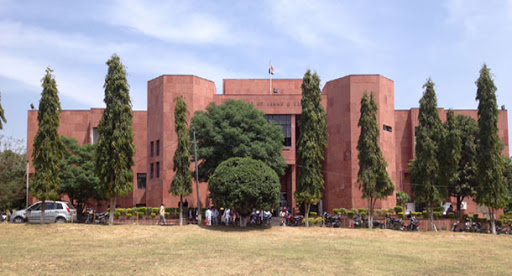Excelsior Correspondent
Srinagar, Apr 25: Holding that unauthorized absence always does not amount to routine termination of service, High Court quashed the order of termination of an employee terming it a stigmatic order and directed for allowing him to continue in service.
The Division Bench of Justice Ali Mohammad Magrey and Justice Puneet Gupta held that the authorities have failed to adhere to the procedure and have mechanically terminated the services of the employee by a stigmatic order and quashed the same.
Court recorded that such kind of order of termination cannot withstand the test of law and allowed the plea of the aggrieved employee by directing that the petitioner is held entitled to the service benefits under law and he shall be allowed to continue in service.
A significant aspect as submitted by the senior Counsel Faisal Qadri appearing for the petitioner-Shahnawaz Shah was that the respondent-authorities have grossly erred in law in inflicting the punishment upon the petitioner on account of alleged five days unauthorized absence as the allegation is not so grave to attract the major punishment of the kind adopted by the respondents.
The argument of the senior counsel, court said, carries weight as the punishment is always required to be proportionate to the alleged charge and the gravity of the charge determines the severity of the punishment but in the instant case that principle also has not been followed.
“The proportionality refers to regulating the exercise of fundamental rights, the appropriate or least restrictive choice of measures as the case may demand. The contention of the senior counsel that the action of the respondents is disproportionate, in the circumstances, cannot be completely brushed aside as the alleged absence for five days attributed to the Covid-19 symptoms by the petitioner has completely been overlooked and no minor punishment has been resorted to”, the DB recorded.
Court said that the provision of law pressed into service by the respondents does not call for termination of a probationer on his unauthorized absence. The power available with the competent authority under the ‘Classification Control and Appeal’ Rules is only to discharge the probationer from probation in the event his performance is not found satisfactory which is admittedly not the case set out against the petitioner.
“In view of the legal position on the subject, the course adopted by the respondents in terminating the services of the petitioner under Rule 21-1-B of the CCA Rules of 1956 is uncalled for and declared to be bad in law”, court said.
In the instant case, the petitioner has been proceeded against on account of unauthorized absence and not on unsatisfactory performance, therefore, the very provision of law, on which the order of termination is based, is against facts and irrational.
The unauthorized absence cannot and must not amount to automatic cessation of service even if the delinquent is a probationer and held that a probationer, like a temporary servant, is also entitled to certain protection and his services cannot be terminated arbitrarily.
Court said the order of termination under challenge ex facie is stigmatic and punitive also as it is founded on the ground of alleged unauthorized absence which has been explained by the petitioner that he had developed the covid-19 symptoms. Therefore, he, in order to save others from getting infected, stayed off. “The standard procedure as followed in order to prevent others getting infected cannot be just brushed aside as the horrible situation emerging in view of the Covid-19 Pandemic at the relevant time has to be taken into consideration while taking a call on the issue”, Court said.
The petitioner-employee is holding the post of Orderly against a clear vacancy and while on probation, has been terminated from service by application of Rule 21 (1) (b) of the CCA Rules of 1956 on the charges of absence from duties.
The petitioner was served with the memorandum and chargesheet which he replied seeking a liberal view to be taken into the allegations framed in the chargesheet as also seeking pardon from the respondents but respondents apparently not convinced with the reply of the petitioner, issued the impugned order and terminated his services.
Trending Now
E-Paper


